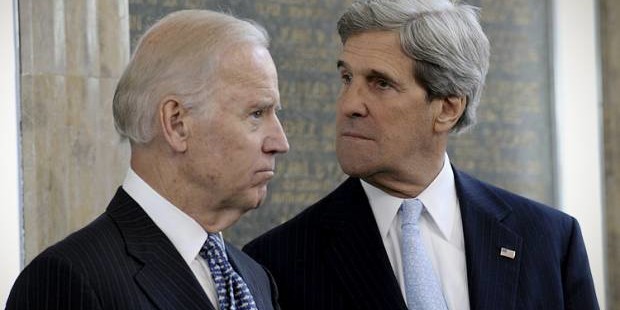
The world is right to hate us: Arrogance, ignorance and obscene foreign policy
This White House was supposed to be different. But our arrogant foreign policy has been the same since the 1950s
Every time we overhear American diplomats talking when we are not supposed to, the conduct of American foreign policy sounds stupider and less imaginative. You step back and say, No wonder America’s relations in the Middle East and across both oceans have deteriorated since the Berlin Wall crumbled to the point they are now a probably irretrievable muddle.
The latest lifting of the lid occurred just the other week. And this one is a doozy — better than some of the tidal wave of stuff Chelsea Manning gave WikiLeaks for release in the summer and autumn of 2010.
This time we are in Kiev, and we get to hear two American diplomats talking about Washington’s plan, already in motion, to install a client regime in the Ukraine. The operational detail is astonishing.
The two State Department hacks are Victoria Nuland, assistant secretary for European affairs, and Geoffrey Pyatt, the Obama administration’s ambassador in Kiev. Both are foreign service careerists, and it shows: They are ready to disrupt the Ukrainian political process with subterfuge and manipulation that are of a fine Cold War vintage.
Readers may be familiar with the four-minute audio clip, which YouTube disseminated last Friday. The thing went fairly viral, mostly because of Nuland’s X-rated recommendation for the European Union, which also takes a lively interest in Ukraine these days. The Europeans, she told Pyatt, should be shoved aside with what in another context would be called the act of love.
“No, exactly,” the sycophantic Pyatt replies without missing a syllable.
Well, yes, exactly. The sailor’s language is surprising, and maybe a little fun to find in an exchange of supposedly sophisticated diplomats. But anyone titillated by Nuland’s vulgar tongue more than very briefly misses the point entirely.
Radoslaw Sikorski, Poland’s foreign minister, quickly tweeted as the recording spread around the world, “Critics of @VictoriaNuland worldwide: let him who has never used strong language in private cast the first stone.” This is the point. Forget that stone. There are others to cast.
A little background. As a republic in the old Soviet Union, Ukraine has been restless within its economic and geopolitical political confines since it declared independence in 1991. There is a desire to shake free of the ancien regime in favor of freer markets, a more liberal society, and so on.
Last year President Viktor Yanukovich was in negotiations with the European Union for an extensive trade agreement, to be signed in tandem with an International Monetary Fund bailout. It would have been the key moment of departure for Ukrainians: They would walk away from their post–Soviet inheritance and enter — tentatively at first, maybe more later — the West European orbit.
Then Yanukovich pulled an abrupt volte-face, turning back to Moscow and a $15 billion bailout package President Putin dangled. And this is when protesters against the Yanukovich government, as seen and described in the world’s media daily, began to fill Kiev’s streets.
It is plain what happened. And demonizing Yanukovich is a distraction. Numerous of his opposition are oligarchs of the new Russian model, in it for the opportunity. Yanukovich was all for the break with Moscow, but Ukraine could not afford it. The EU’s offers came with too many conditions and amounted to small fractions of Putin’s; they did not address an economy in critical trouble.
A Reuters correspondent, Elizabeth Piper, produced a superb blow-by-blow account of Ukraine’s predicament late last year. In it she quoted Volodymyr Oliynyk, a close ally of the president. “We go one way to Russia and we get hit,” he said. “We go the other way, to Europe, and we get hit. We stand still, and we get hit.” And then, referring to the turn back to Moscow: “But it will hurt less this way.”
It is persuasive. Look at the numbers Piper cites. Read the EU conditions, some of which were spiteful and without point other than to cultivate euro-tilted political tendencies, an intent with no place in a trade and economic package.

